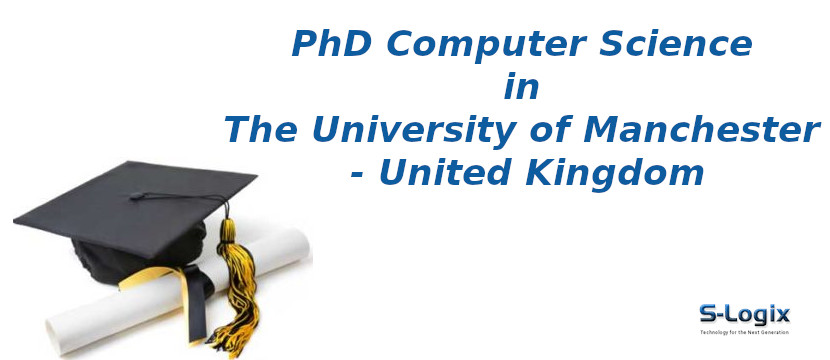The University of Manchester is a publically owned research-oriented institution based in Manchester, England, and was established in 1824 as the Mechanics Institute. The University of Manchester is regarded as red brick university and integrates the University Of Manchester Institute Of Science and Technology (UMIST) and the Victoria University of Manchester.
The University of Manchester is affiliated with the Russell Group, the N8 Group, and the Universities Research Association worldwide. The University of Manchester is considered one of the world-s best universities, ranked 28th by QS Rankings, 5Oth by the Times Higher Education (THE) in World University Ranking, and 9th in the Impact Rankings.The University of Manchester is popular for its excellent standard of teaching and research.
Manchester University comprises several academic schools such as the School of Biological Sciences, School of Medical Sciences, the School of Health Sciences, the School of Engineering, the School of Natural Sciences, Alliance Manchester Business School, School of Arts, Language and Cultures, School of Environment, Education and Development, and School of Social Sciences.
The University of Manchester Research Institute (UMRI) is medial to the university-s goal of focusing on its path-breaking interdisciplinary research and owns 23 research institutes in diverse fields of science and arts. The University of Manchester delivers 412 undergraduate and 587 postgraduate degree programs.
As a globally recognized university, the University of Manchester contends with social and environmental challenges via its research, teaching and education, public commitment, and campus performance.
Address: Oxford Rd, Manchester M13 9PL, United Kingdom
Phone: +44 161 306 6000
Email: uom@helpmeapply.co.uk
Website: https://www.manchester.ac.uk/
Undergraduate Courses:
• Computer Science
• Computer Systems Engineering
• Data Science
• Software Engineering
• Information Technology
Graduate Courses:
• Computer Science
• Computer Vision
• Data Science
• Machine Learning
• Robotics
• Software Engineering
Ph.D. Courses:
• Computer Science
• Artificial Intelligence
• Cyber Security
• Data Science
• Machine Learning
• Robotics
• Software Engineering
The University of Manchester imparts world-changing research contributions in the fields of Artificial intelligence; Data Science; Future computing systems; Human-centered computing; Software and e-infrastructure; Theory; and foundations. Some of their computer science research areas of expertise are:
• Advanced processor technologies
• Autonomy and verification
• Formal methods
• Human-computer systems
• Imaging science
• Information management
• Machine learning and robotics
• Nano-engineering and spintronic technologies
• Natural language processing and text mining
• Systems and software security
Research interests in computer science research at the University of Manchester with respect to its research areas are highlighted below;
Advanced Processor Technologies:
• Many-Core Systems
• Neuromorphic Computing
• High-Performance Computing Systems
• Reconfigurable Computing
Autonomy and Verification:
• Programming Autonomous Systems
• Ethics, Responsibility, & Trustworthiness
• Verification Of Autonomous Systems
Formal Methods:
• Automated Reasoning
• Automated Verification
• Computational Logic
• Formal System Modelling & Development
• Mathematical Models For Proofs & Programs
• Ontology Re-Engineering
• Program Analysis
Human-Computer Systems:
• VR/AR For Medical Or Educational Purposes
• Accessibility Technology
• Visual Attention
• Web Technology
• Mobile Systems
Imaging Science:
• Biological Image Analysis
• Diagnosis Of Vertebral Fragility Fractures
• Medical Image Analysis
• Modeling Shape & Appearance
• Studying Faces
Information Management
• Data Preparation
• Data Discovery
• Network & Distributed System Security
• Wireless Sensor Networks
• Mobile Ad Hoc Networks
• Ubiquitous Computing
• Electronic Commerce
• Internet Of Things (Iot)
• Cloud Computing
• Secure Routing Protocols For Ad Hoc Networks
• Cryptographic Methods For Protecting Big Data
• Security Protocols For Privacy-Preserving Data Collections
• Risk-Based Authentication
• Dynamic Access Control
• Trust Management
Machine Learning and Robotics:
• Fundamentals Of Statistical Machine Learning
• Medical Decision Making
• Cognitive Robotics
Nano-engineering and Spintronic Technologies:
• Graphene-Based Sensors
• Magnetic Random Access Memory
• Nanoscale Materials For Spintronics, Data Storage & Clinical Applications
• Skyrmions
• Spin Wave Phenomena
Systems and Software Security:
• Trustworthy Software Systems
• Cryptography
• Networked & Distributed System Security
• Data & Identity Privacy
• Systems & Software Verification
• Systemic View Of Governance In Cyber Resilience
University of Research Manchester Institute initiates 23 research institutes in diverse fields of science and arts. Some of them are:
The University of Manchester furnishes a span of funding possibilities that cultivate academic talents and gratify high achievements. Such scholarship programs are:
Academic entry qualifications and requirements for a Doctorate program in computer science at University College London are;
• Applicants must hold the UK Honors degree or Masters at Merit level in a computer science or relevant discipline, or equal international qualifications
• For English Language qualification, applicants submit the English Language score report of IELTS/ TOEFL iBT/Pearson Test of English (PTE) with an acceptable score of 6.5/90/58. Otherwise, pre-sessional English course certificates are also accepted.
Applicants must attach the following documents:
• Degree certificates and academic transcripts of preceding university studies
• The CV that describes the academic record,work experience,any prizes/competitions, published research work, project works, service and leadership skills, community activity, training experience, and soft skills
• Research Proposal with its importance, objectives, literature review, and methodology
• Two academic letters of references
